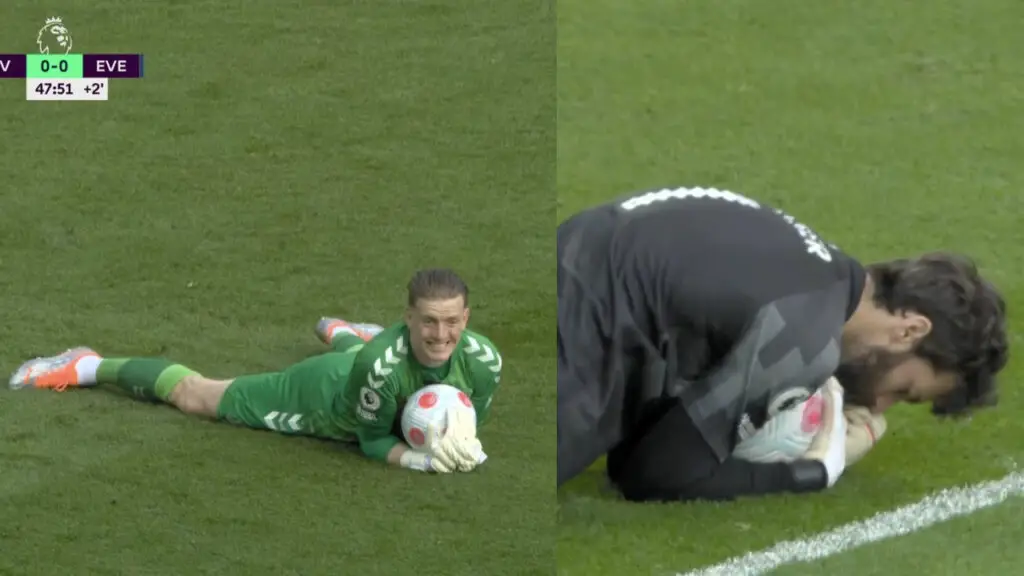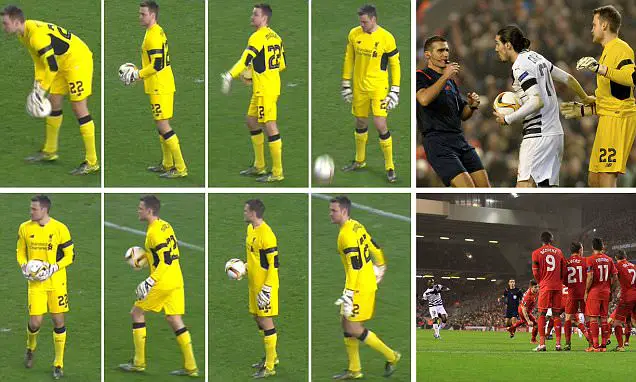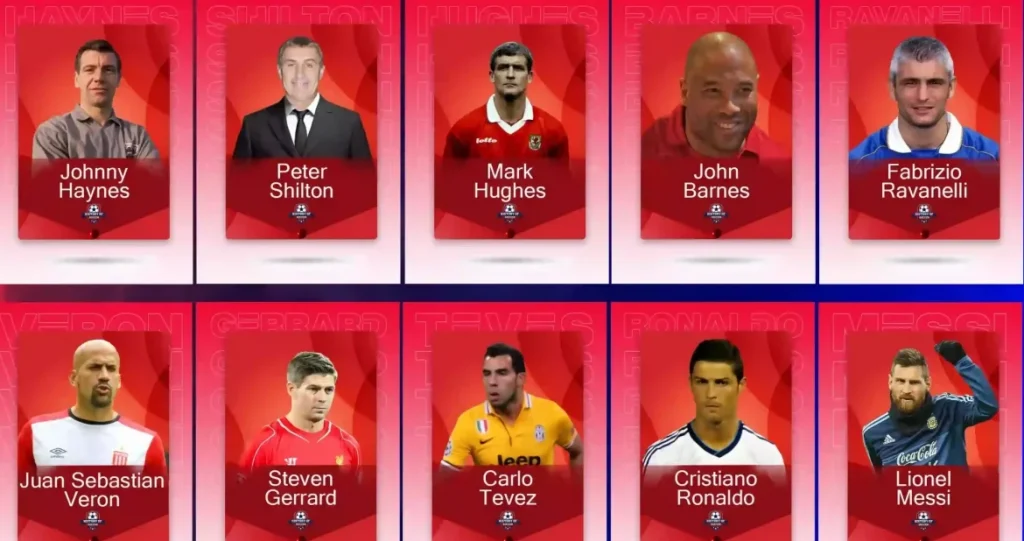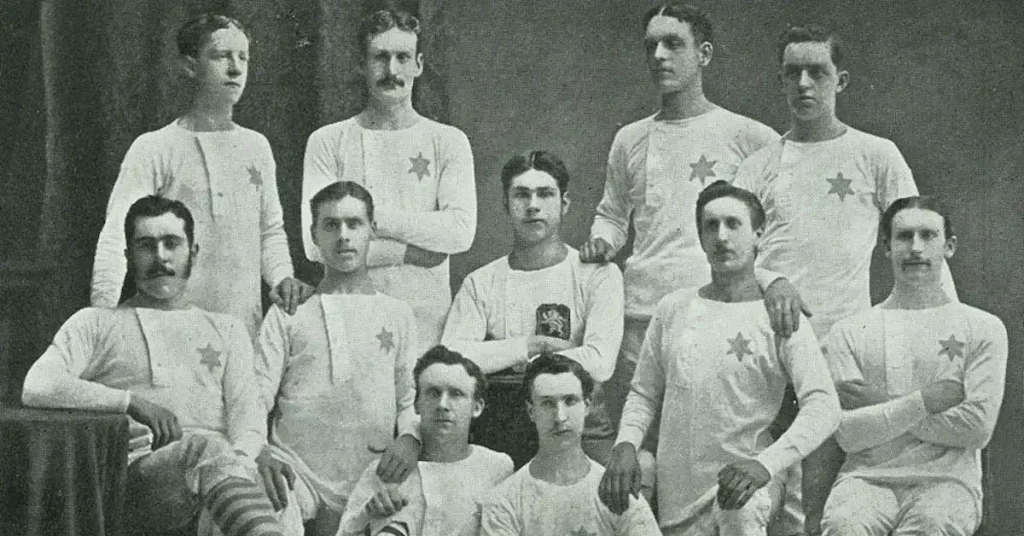If, like me, a chunk of your younger years was devoted to playing FIFA then the first time this thought would’ve come into your mind was probably following an opposition attack – the keeper has the ball in hand, but no passing options. A small, yellow symbol with a 6 inside it appears at the bottom of the screen, and is followed by the keeper promptly hoofing the ball straight to the opposition’s feet before you can react.
Or, also like me, the team you support is trailing by one goal and after watching the opponent keeper booked for holding on to the ball, and aiming many expletives at the time-wasting keeper, you question just what exactly is the official stance on goalkeepers holding onto the ball? Outraged and confused, some post-game googling gives you an explanation: The keeper can only hold the ball for 6 seconds. But it still doesn’t make sense…
The Law
Unbelievably, that’s all. Just 6 seconds. But the keeper held it far longer than that, multiple times… And he only got booked in the literal last minute of the game for it. What the **** is that about? The ‘6 Second Rule’ as it is commonly known is found in The IFAB (International Football Association Board) rulebook ‘Laws of the Game 2022-23’ under ‘Law 12’.
Specifically, the rule stipulates that if the keeper ‘controls the ball with the hand/arm for more than six seconds before releasing it’ the opposition shall be awarded an indirect free kick. As this rule is an official IFAB law, it applies to association football globally (beside 8 sovereign states not yet recognised by FIFA), so that’s that, right? Unfortunately, rules are never that simple.
The ‘6 Second Rule’ exists to both maintain the pace of the game and to prevent the leading team from time-wasting as the game draws to a close. As an idea, it’s excellent; it levels the playing field and keeps the excitement high when it matters most – the issue arises when putting it to practise. Just a quick thought for you, when was the last time you saw an indirect free kick awarded due to goalkeeper time-wasting?
Effectiveness and Implementation of the Rule
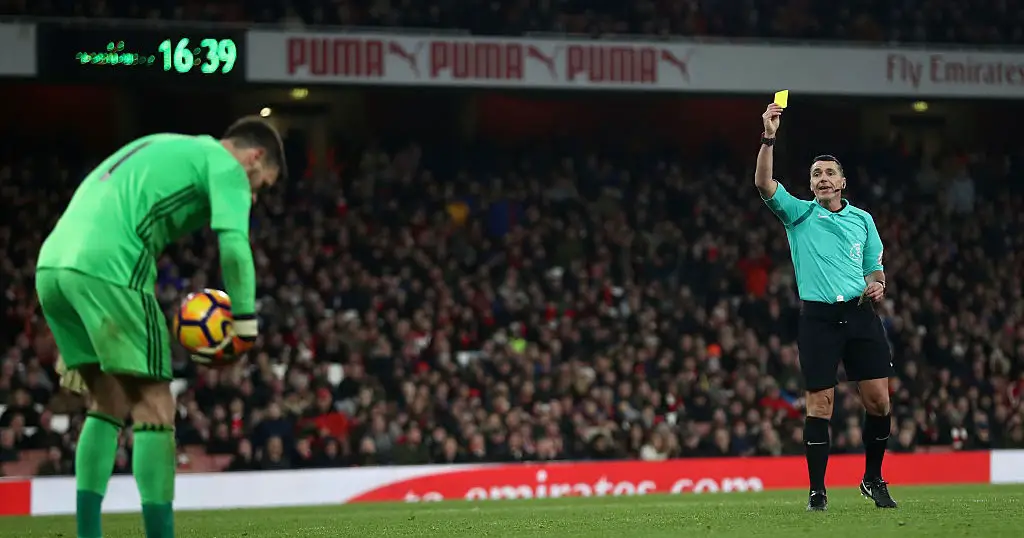
I can’t think of a time I’ve ever seen it live. Otto Kolbinger, Chair of Performance Analysis and Sports Informatics at Technical University of Munich and Michael Stöckl, Department of Sport Science at the University of Vienna conducted research into ‘Trivial Offences in Football’ using 45 games from the German Bundesliga – the top flight of German football. Through these 45 games a goalkeeper typically controls the ball for six seconds, within their rights.
However, the ‘6 Second Rule’ was violated in 38.4% of situations. That’s right, over one-third of situations involving the ball-in-hand should have resulted in an indirect free kick for the opposition. Worse still, they found that in these situations the length of time the keeper holds the ball is directly influenced by the current score of the game, indicating a tactical abuse – time-wasting. With so many opportunities for bookings, you’d think there’d be at least 10, 5 minimum. There was zero.
So what gives? Why – in the top flight of football – are the laws of the game not upheld? I’d say for a start, referees would rather use their discretion when it comes to small infringements of the rules. Fans and officials alike widely accept that some minor infringements are allowed and often ignored or forgiven by the modern referee.
A common belief is in the unwritten ‘18th Law of Common Sense’ – that as the adjudicator of the game referees can use their discretion to judge infringements with a fairer attitude, though this presents problems of referee bias and varying punishment levels. Additionally, due to the high-intensity situation referees are in fully accurate timekeeping through just a wristwatch isn’t exactly possible.
Sure, there’s VAR now, along with their headset, on the other side of which sits a body of individuals who could time six seconds to several decimal places, but confirming an infringement would be slow, and the entire purpose of the rule is to maintain the speed of play. The ‘6 Second Rule’ is stuck in a Catch-22 of sorts, then: often infringed but unenforceable – especially in the modern game.
Why Has the Law Not Been Phased out of the Game?
Well, the law essentially needs to exist to book particularly, flagrant, violations. During their 2015 Europa League campaign Liverpool faced Bordeaux to advance to the knockout round, the score was 1-1 on aggregate and 0-0 32 minutes into the second leg. Liverpool were playing at home, and Simon Mignolet, our hero, collects the ball in his penalty area, looks around, considers releasing the ball and decides not to.
Instead, he gestures to his centre backs – Kolo Toure and Dejan Lovren – to move the play upfield, which they do quickly. Then, he waits. Then he waits some more, and some more, the Bordeaux attackers start shrugging their shoulders and gesturing to the ref, he waits some more. Only after several Bordeaux players question the ref does he intervene, a whopping twenty-two seconds after Mingolet received the ball, which is almost quadruple what the rule stipulates – so definitely deserving of an actual penalty.
Bordeaux converted the resulting indirect free kick and took the lead of the second leg, forcing Liverpool to score 2 goals to win. They do, but had Mingolet just booted the ball down the field once Toure and Lovren were in position they would have probably been fine. The referee, Alon Yefet, wasn’t even being unreasonable – again, it was nearly quadruple the time the rule states – and he was met with mass boos from Liverpool supporters. Booing is typical of course, but the decision clearly invoked some deeper ire in them.
Why not revise the rules then? Well, no one really seems to be sure. On one hand it’s hard to define a more specific rule for the aforementioned reasons, especially when the rule revolves around maintaining the speed of play. Referees (should) have the rules memorised at the highest level, and they know what is happening on the pitch at any given time.
They will be aware that more than 6 seconds has elapsed, but for the purpose of maintaining the speed and flow of the game it is easier to just ignore the infringement; I’ve not seen a world where a keeper holding the ball for 6.02 second results in an indirect free kick and potentially a goal in around 40% of situations, and I’m not sure I want to. If it’s not broken, why fix it?
